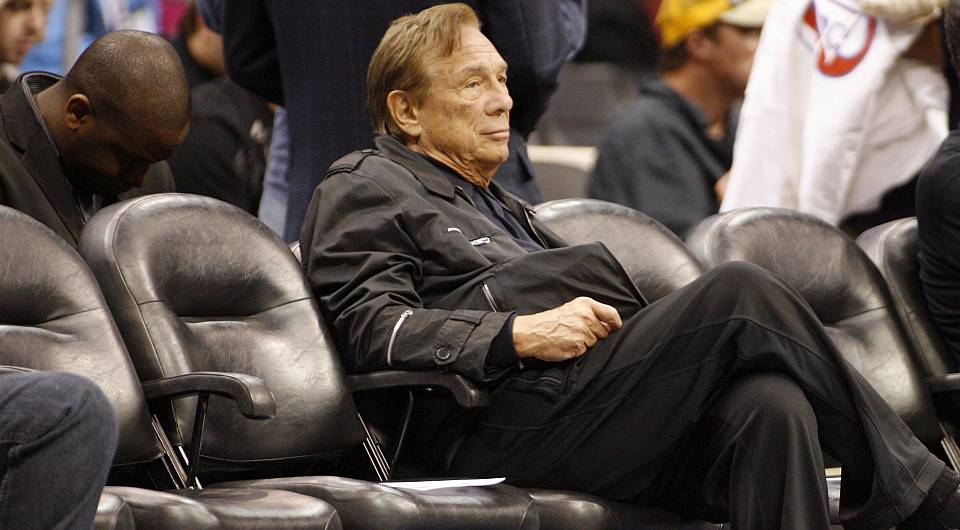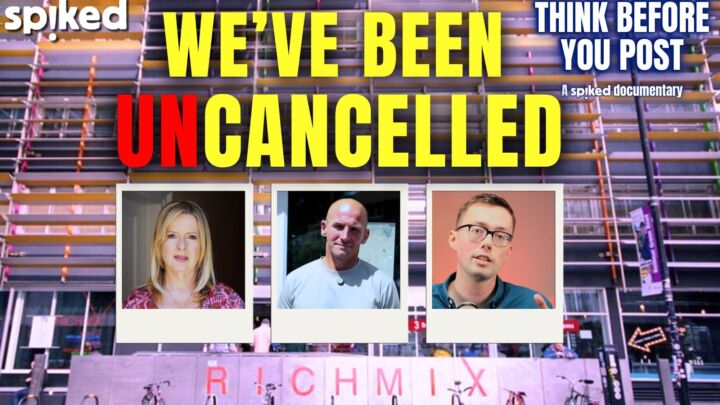A not-so Sterling attack on free speech
The LA Clippers owner has been hounded out of the NBA for a speech crime.

Want unlimited, ad-free access? Become a spiked supporter.
Three days ago, gossip website TMZ released a recording of Donald Sterling, owner of the Los Angeles Clippers basketball team, making derogatory comments about black people to his former girlfriend. These included Sterling’s requests that she not bring black people to Clippers games, or post photos of herself with black people on Instagram. Immediately, the revelation caused an uproar, and players and fans denounced Sterling and called for his removal. Even US President Barack Obama found time during his tour of Asia to express his displeasure. The media response was especially enraged and zealous. As the National Basketball Association (NBA) legend Kareem Abdul-Jabbar put it, the media ‘put his head on a pike, dubbed him Lord of the Flies, and danced around him wooping’.
Now, just a few days later, Adam Silver, the commissioner of the NBA, has fined 80-year-old Sterling $2.5million, banned him from the league for life, and called on the other team owners to force Sterling to sell the team. As the New York Times noted, the NBA’s ousting of Sterling is ‘a rare, if not unprecedented, move for a North American professional sports league — made even more unusual by the fact that the NBA is punishing Mr Sterling for comments he made in a private conversation’.
The reaction to the NBA’s move to banish Sterling has been overwhelmingly positive. The league’s best player, LeBron James, tweeted: ‘Commissioner Silver thank you for protecting our beautiful and powerful league!! Great leader!!’ Indeed, the broader reaction was almost giddy and celebratory. USA Today sportswriter Christine Brennan gushed: ‘Isn’t it wonderful to see a twenty-first-century commissioner throw the book at someone who deserves it?’
Like most people, I found Sterling’s remarks to be crude, prejudiced and repugnant. But the mob overreaction, demanding not just punishment for Sterling but his removal from the league, is very disturbing for free speech and social tolerance.
Let’s consider the implications:
- Sterling’s comments were made in a private conversation and recorded without his knowledge. Everyone has made regrettable comments in private, but we don’t expect to be hauled over the coals in public for them. Even if you can make a case that Sterling’s remarks were in keeping with other racist behaviour (for example, there are allegations against him of employment and housing discrimination against blacks and Latinos), the violation of privacy is deeply problematic. Those who warn about the NSA spying on every conversation are now among the loudest cheering Sterling’s downfall, which wouldn’t have happened without illegally obtained evidence. Do we really want to make pillow talk fair game? Expect more ‘gotcha’ stories, with leading figures being ‘outed’ for private comments recorded surreptitiously.
- Sterling’s downfall came from impolitic speech, not from causing any actual harm. Many players, including current Brooklyn head coach Jason Kidd, have been convicted for driving while intoxicated. Such acts threaten real harm – they potentially could kill someone – and yet there is been no outrage towards Kidd or others like there has been in response to Sterling’s words. Sterling’s comments are considered bigoted and hateful, and today that is considered a crime in itself. More and more you hear ‘we cannot tolerate intolerance’. But if speech is only allowed for those that express views that you agree with, then it’s not free. Free speech means the freedom for everyone to express themselves, even bigots.
- Many will say that this is not a free-speech issue, because Sterling did not have his First Amendment rights taken away, and the government did not step in to censor him. But free speech is more than legal rights vis à vis the state; it also includes whether we tolerate expression in society. Much of the debate over Sterling, as in other recent controversies (like the ousting of Brendan Eich at Mozilla), focuses on how the owners, boards of directors or managers should or shouldn’t respond. But the real issue is not how those few at the top respond; it’s how people in society respond. And the problem today is that the broader response is intolerant: say something we deem unacceptable, and you must disappear. It would be perfectly fine – indeed a good thing, in my view – to express disagreement and disgust with racist views, and to argue against them in the strongest terms. But that’s not the response we see today. Instead, it is ‘make it go away now’. It’s really problematic when people feel that the only way to express anger or opposition to something objectionable is to call for the one voicing that opinion to be hounded out.
- Think of the precedent the NBA’s move against Sterling creates. What about occasional remarks that white players make about black players, and vice versa, in the heat of the game? Should they be kicked out? What about other owners’ privately held views; are any of them secretly anti-Semitic? Plenty of players have been criticised for ‘gay slurs’; some have also been arrested for domestic abuse. Will they not be punished now for being anti-gay or anti-women? The principle that the NBA commissioner can expel someone from the league for saying something offensive has been established with Sterling; now the argument will be over whether certain comments are offensive enough to deserve expulsion.
- Some are hailing Sterling’s removal as a victory for anti-racism. Kevin Johnson, a former NBA player and the mayor of Sacramento, California, said: ‘This is a defining moment in our history. Through history, sports has played a pivotal role in advancing civil rights… I believe that today stands as one of those great moments where sports once again transcends, where sports provides a place for fundamental change on how our country should think and act.’ Hang on a minute. How can the demise of an octogenarian basketball owner with ignorant views on race be considered a ‘defining moment’ in US history and the black civil-rights movement? Johnson’s hype is just another indication of how over-the-top the reaction to Sterling has been. His statement implies that anti-racism now amounts to hounding individuals, rather than changing society. As it happens, knocking down Sterling will do nothing to end discrimination against black Americans, but it will make certain people feel self-righteous.
Today, too many people are so convinced that they are in the right, that they are fighting bigotry and hatred, that they fail to see how their response is truly intolerant and illiberal. It’s becoming almost automatic that, whenever something politically incorrect is uttered, a mob with pitchforks and torches rises up, seeking revenge and punishment. That response is unthinking, emotional and blind to the long-term consequences for a free society.
Sean Collins is a writer based in New York. Visit his blog, The American Situation.
You’ve read 3 free articles this month.
Support spiked and get unlimited access.
Help us hit our 1% target
spiked is funded by readers like you. It’s your generosity that keeps us fearless and independent.
Only 0.1% of our regular readers currently support spiked. If just 1% gave, we could grow our team – and step up the fight for free speech and democracy right when it matters most.
Join today from £5/month (£50/year) and get unlimited, ad-free access, bonus content, exclusive events and more – all while helping to keep spiked saying the unsayable.
Monthly support makes the biggest difference. Thank you.







Comments
Want to join the conversation?
Only spiked supporters and patrons, who donate regularly to us, can comment on our articles.